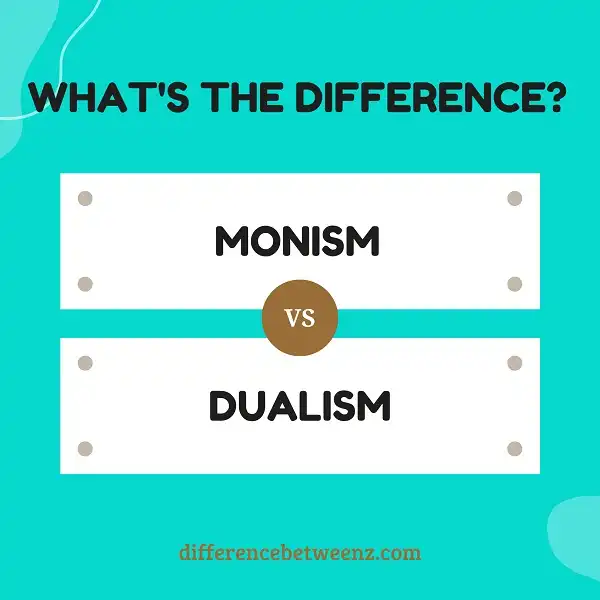Philosophers have long debated the difference between monism and dualism. The two theories propose different understandings of the relationship between mind and body. Monism upholds that there is only one entity, while dualism maintains that there are two separate entities. In this blog post, we will explore these theories in greater detail and discuss their implications for our understanding of the world.
What is Monism?
- Monism is the view that there is only one kind of substance in the universe. substances are either mental or physical. Monism is often contrasted with dualism, the view that there are two kinds of substances in the universe, mental and physical. Monism is further divided into three main categories: idealism, materialism, and neutral monism.
Idealism is the view that everything in the universe is made of mind-stuff, or that the only things that really exist are minds and ideas. - Materialism is the view that everything in the universe is made of matter, or that matter is the only thing that really exists. Neutral Monism is the view that mind and matter both exist and are both made of a single neutral substance.
- Monism has been espoused by some of history’s greatest thinkers, including Baruch Spinoza, Georg Wilhelm Friedrich Hegel, Gottfried Wilhelm Leibniz, Johann Wolfgang von Goethe, Ralph Waldo Emerson, and William James. Monism should not be confused with monotheism, which is the belief in one God. Monotheism is a form of Theism, which is any belief in a personal god or gods.
What is Dualism?
Dualism is the belief that there are two fundamental kinds of stuff in the universe: mind and matter. Dualists usually believe that the mind is something nonphysical that interacts with the physical world—for instance, by causing physical events to happen or by being affected by them. Dualism has been endorsed at various times by many different people, including the Greek philosophers Plato and Aristotle and the 17th-century French philosopher René Descartes. Some contemporary philosophers have also been drawn to versions of dualism. But most philosophers now think that dualism is probably false.
Difference between Monism and Dualism
Monism and Dualism are two of the most common philosophical positions on the nature of reality. Monism is the belief that there is only one true reality, while dualism is the belief that there are two realities: objective reality and subjective reality. Monism is often associated with materialism, the belief that only physical matter exists, while dualism is often associated with idealism, the belief that consciousness is the only true reality.
Monists argue that dualists have failed to account for the fact that physical matter can be observed and measured, while dualists argue that monists have failed to account for the fact that consciousness cannot be observed or measured. Monism and dualism are both sophisticated philosophical positions with a long history of debate; which position is correct remains an open question.
Conclusion
Monism and dualism are two different ways of looking at the world. Monists believe that everything is one, while dualists see the world as consisting of two separate parts. In the context of neuroscience, monism would be considered reductionist because it tries to understand complex phenomena by breaking them down into their simplest form. Dualism, on the other hand, would be considered holistic because it takes a more comprehensive view of things. Both perspectives have strengths and weaknesses, but which one you choose ultimately depends on your own worldview and how you want to approach understanding the brain.


